Black radish, scientifically known as Raphanus sativus var. niger, is a lesser-known vegetable that packs a punch when it comes to health benefits. Despite its humble appearance, this root vegetable has been revered for centuries in various cultures for its medicinal properties. Let’s delve into the scientifically backed advantages of incorporating black radish into your diet.
 Antioxidant Powerhouse
Antioxidant Powerhouse
Black radish is rich in antioxidants, particularly anthocyanins, flavonoids, and phenolic compounds. These antioxidants play a crucial role in scavenging free radicals in the body, thus reducing oxidative stress and lowering the risk of chronic diseases such as cancer, cardiovascular diseases, and neurodegenerative disorders.
One notable compound found in black radish is glucosinolates, which are sulfur-containing compounds known for their potent antioxidant and anti-inflammatory properties. Glucosinolates undergo enzymatic breakdown to form isothiocyanates, compounds with strong antioxidant activity that help neutralize harmful free radicals and reduce oxidative damage to cells and tissues.
Moreover, black radish contains high levels of vitamin C, a powerful water-soluble antioxidant that contributes to its antioxidant prowess. Vitamin C works synergistically with other antioxidants present in black radish, enhancing their effectiveness in combating oxidative stress and bolstering the body’s defense against chronic diseases. Additionally, black radish is rich in minerals such as manganese and zinc, which serve as cofactors for antioxidant enzymes, further enhancing its antioxidant capacity.
Another distinguishing feature of black radish is its deep purple or black skin, which is indicative of its high anthocyanin content. Anthocyanins are water-soluble pigments with potent antioxidant properties, known for their ability to scavenge free radicals and protect cells from oxidative damage. The presence of anthocyanins in black radish not only gives it its distinctive color but also enhances its antioxidant potential, making it a valuable addition to a health-conscious diet.
 Liver Detoxification
Liver Detoxification
One of the most acclaimed benefits of black radish is its ability to support liver health. Studies have shown that black radish contains compounds like glucosinolates, which stimulate the production of enzymes involved in liver detoxification pathways. By enhancing liver function, black radish aids in the elimination of toxins from the body, promoting overall well-being.
Apart from glucosinolates, black radish also contains high levels of sulfur-containing compounds, such as isothiocyanates and thiols, which play a pivotal role in liver detoxification processes. These sulfur compounds work synergistically with glucosinolates to enhance the production of phase I and phase II detoxification enzymes in the liver, thereby facilitating the breakdown and elimination of harmful substances from the body.
Moreover, black radish is rich in antioxidants, particularly anthocyanins and flavonoids, which exert protective effects on liver cells and mitigate oxidative damage caused by toxins and free radicals. These antioxidants help shield hepatocytes from injury and inflammation, preserving liver function and promoting overall liver health. Additionally, black radish contains dietary fiber, which aids in the excretion of toxins through the gastrointestinal tract, further supporting detoxification processes.
Furthermore, the bioactive compounds found in black radish exhibit anti-inflammatory properties, which contribute to liver health by reducing inflammation and preventing liver damage. By modulating inflammatory pathways and inhibiting pro-inflammatory cytokines, black radish helps maintain a balanced inflammatory response within the liver, protecting against chronic liver diseases and promoting tissue repair and regeneration.
 Digestive Health
Digestive Health
Black radish is a good source of dietary fiber, which is essential for maintaining digestive health. Fiber adds bulk to stool, preventing constipation, and promoting regular bowel movements. Moreover, black radish contains enzymes like myrosinase, which aid in the digestion of fats and proteins, thereby improving nutrient absorption.
In addition to its fiber content and digestive enzymes, black radish possesses unique compounds that contribute to its digestive health benefits. One such compound is glucosinolates, which are sulfur-containing compounds found abundantly in cruciferous vegetables like black radish. Glucosinolates have been shown to support digestive function by promoting the growth of beneficial gut bacteria and reducing inflammation in the digestive tract.
Furthermore, black radish contains specific antioxidants, such as anthocyanins and flavonoids, which play a role in maintaining gastrointestinal health. These antioxidants help protect the lining of the digestive system from oxidative damage, thereby reducing the risk of gastrointestinal disorders such as ulcers and inflammatory bowel disease.
Moreover, black radish is a natural source of prebiotic fibers, which serve as food for beneficial gut bacteria. By nourishing the microbiome in the intestines, black radish promotes a healthy balance of gut flora, which is essential for optimal digestion, nutrient absorption, and overall immune function.
Another remarkable aspect of black radish is its ability to stimulate bile production and secretion. Bile plays a crucial role in the digestion and absorption of fats, and by enhancing bile flow, black radish supports the breakdown and assimilation of dietary fats, promoting efficient digestion and nutrient absorption.
Additionally, black radish exhibits mild diuretic properties, which can help alleviate water retention and bloating, further contributing to digestive comfort. By promoting urine production, black radish assists in the elimination of excess fluid and toxins from the body, supporting overall digestive and metabolic health.
 Anti-inflammatory Properties
Anti-inflammatory Properties
Black radish stands out among its botanical counterparts for its rich concentration of bioactive compounds, particularly glucosinolates and isothiocyanates. These compounds are potent antioxidants that exert anti-inflammatory effects through multiple mechanisms. Unlike some other vegetables, black radish contains specific varieties of glucosinolates, such as glucoraphasatin, which are uniquely abundant in this root vegetable.
Furthermore, black radish contains a higher proportion of certain isothiocyanates, such as raphasatin and sulforaphene, compared to other cruciferous vegetables. These compounds have been found to exhibit superior anti-inflammatory activity by modulating signaling pathways involved in the inflammatory response. Additionally, black radish contains phytochemicals like anthocyanins and flavonoids, which contribute to its anti-inflammatory properties and enhance its overall therapeutic potential.
Studies have demonstrated that black radish extract possesses remarkable efficacy in reducing inflammatory markers and ameliorating symptoms associated with inflammatory conditions. Its unique combination of bioactive compounds works synergistically to suppress the production of pro-inflammatory mediators, such as interleukins and tumor necrosis factor-alpha, while promoting the activity of anti-inflammatory enzymes.
Moreover, black radish’s anti-inflammatory effects extend beyond its systemic impact to encompass localized inflammation in tissues and organs. Its bioactive constituents have been shown to penetrate deep into inflamed tissues, exerting targeted anti-inflammatory action and providing relief from discomfort and swelling. This localized activity makes black radish a valuable ally in managing inflammatory conditions affecting specific areas of the body, such as arthritis and joint pain.
 Immune System Support
Immune System Support
The immune-boosting properties of black radish can be attributed to its high content of vitamin C and other immune-stimulating compounds. Vitamin C enhances the production of white blood cells, which are crucial for fighting off infections and diseases. Additionally, black radish contains sulfur-containing compounds that have antimicrobial properties.
In addition to its rich vitamin C content, black radish possesses a unique array of immune-stimulating compounds that set it apart from other vegetables. One such compound is glucosinolates, which are sulfur-containing phytochemicals found abundantly in black radish. Glucosinolates have been shown to exhibit potent antimicrobial properties, inhibiting the growth of harmful bacteria and viruses in the body.
Furthermore, black radish contains specific bioactive compounds known as isothiocyanates, which are formed when glucosinolates are broken down. Isothiocyanates have been the subject of extensive scientific research due to their remarkable immune-modulating effects. These compounds not only bolster the activity of immune cells but also regulate immune responses, helping to maintain a delicate balance between defense mechanisms and inflammatory processes.
Moreover, black radish is a rich source of phytonutrients such as flavonoids and phenolic compounds, which possess antioxidant properties. These antioxidants play a crucial role in scavenging free radicals and reducing oxidative stress, thus supporting overall immune function. By neutralizing harmful molecules that can compromise immune health, black radish aids in fortifying the body’s natural defenses against infections and diseases.
 Weight Management
Weight Management
Including black radish in your diet can aid in weight management due to its low calorie and high fiber content. The fiber helps you feel full for longer periods, reducing overall calorie intake and supporting weight loss efforts. Additionally, black radish can boost metabolism due to its thermogenic properties, potentially aiding in fat burning.
Continuing with the topic of weight management, black radish offers unique properties that set it apart from other vegetables. One such distinction lies in its composition of glucosinolates, a group of sulfur-containing compounds found abundantly in cruciferous vegetables like black radish. Glucosinolates have been studied for their potential role in promoting weight loss by influencing metabolic processes and enhancing fat metabolism. Additionally, black radish contains specific glucosinolates, such as gluconasturtiin, which have been shown to exert anti-obesity effects by modulating lipid metabolism and adipocyte function.
Moreover, black radish is a rich source of vitamins and minerals that play essential roles in metabolic health and energy regulation. For example, it provides significant amounts of vitamin C, which is involved in the synthesis of carnitine, a compound essential for the transport of fatty acids into the mitochondria for energy production. Furthermore, minerals like potassium and magnesium found in black radish contribute to proper muscle function and electrolyte balance, which are crucial for maintaining a healthy metabolism.
Another noteworthy aspect of black radish is its low glycemic index (GI), meaning it has minimal impact on blood sugar levels when consumed. This is particularly beneficial for individuals looking to manage their weight or regulate blood sugar levels, as foods with a low GI are less likely to cause spikes in blood glucose and insulin levels, promoting satiety and stable energy levels throughout the day.
 Respiratory Health
Respiratory Health
Black radish has been traditionally used to alleviate respiratory ailments such as coughs, colds, and sinus congestion. It contains compounds like sinigrin, which have expectorant properties, helping to loosen mucus and clear the airways. Consuming black radish may provide relief from respiratory symptoms and promote respiratory health.
Black radish stands out among other botanical remedies for respiratory health due to its distinctive combination of bioactive compounds and therapeutic properties. One such compound found in black radish, known as raphanin, exhibits potent antimicrobial activity against respiratory pathogens, including bacteria and viruses. This natural defense mechanism helps combat infections and reduce inflammation in the respiratory tract, contributing to improved respiratory function.
Moreover, black radish contains sulfur-containing compounds, such as isothiocyanates, which possess anti-inflammatory and antioxidant properties. These compounds work synergistically to alleviate respiratory inflammation and oxidative stress, providing relief from symptoms such as wheezing, chest tightness, and shortness of breath. Additionally, the high vitamin C content in black radish supports immune function and enhances the body’s ability to fend off respiratory infections, further promoting respiratory resilience and well-being.
Furthermore, black radish demonstrates remarkable mucolytic activity, meaning it has the ability to break down and liquefy thick mucus, facilitating its expulsion from the airways. This expectorant action helps relieve congestion and congestion-related symptoms, making breathing easier and more comfortable. By addressing the underlying causes of respiratory discomfort, black radish offers a holistic approach to respiratory health that goes beyond mere symptom relief, promoting long-term respiratory wellness and vitality.
Skin Benefits
The antioxidant properties of black radish can benefit skin health by combating oxidative stress and protecting against premature aging. Vitamin C, present in black radish, promotes collagen synthesis, improving skin elasticity and reducing the appearance of wrinkles and fine lines. Additionally, the antimicrobial properties of black radish may help in the treatment of acne and other skin conditions.
Furthermore, black radish contains glucosinolates, sulfur-containing compounds known for their detoxifying effects. These compounds help purge toxins from the skin, promoting a clearer complexion and reducing the risk of blemishes and breakouts. By supporting the body’s natural detoxification processes, black radish contributes to overall skin health and vitality.
In addition to its antioxidant and detoxifying properties, black radish is rich in essential nutrients such as vitamins A and E, as well as minerals like zinc and selenium. These nutrients play crucial roles in maintaining skin integrity and function, protecting against environmental damage, and promoting skin repair and regeneration.
Moreover, black radish’s high water content helps hydrate the skin, keeping it supple and moisturized. Proper hydration is essential for maintaining skin elasticity and preventing dryness and flakiness. Incorporating black radish into skincare routines can help replenish moisture levels and support a healthy skin barrier.
Bone Health
Black radish contains minerals like calcium, magnesium, and phosphorus, which are essential for maintaining healthy bones. Calcium, in particular, plays a crucial role in bone strength and density, while magnesium and phosphorus contribute to bone formation and remodeling processes. Including black radish in your diet can support overall bone health and reduce the risk of osteoporosis.
Research suggests that black radish contains glucosinolates, sulfur-containing compounds known for their potential bone-protective effects. These compounds may stimulate osteoblast activity, the cells responsible for bone formation, and inhibit osteoclast activity, which helps regulate bone resorption.
Furthermore, black radish is a natural source of antioxidants, including vitamin C and flavonoids, which play a role in reducing oxidative stress and inflammation in bone tissue. By neutralizing free radicals and suppressing inflammatory processes, these antioxidants may help preserve bone density and integrity, thereby reducing the risk of age-related bone disorders such as osteoporosis.
Cardiovascular Support
Regular consumption of black radish may have cardiovascular benefits, thanks to its potassium content. Potassium helps regulate blood pressure by counteracting the effects of sodium and promoting vasodilation. Additionally, the fiber and antioxidants in black radish contribute to heart health by lowering cholesterol levels and reducing the risk of atherosclerosis and heart disease.
In addition to its potassium content, black radish offers a unique combination of bioactive compounds that contribute to cardiovascular health. One such compound is anthocyanin, a flavonoid with powerful antioxidant properties. Anthocyanins have been shown to reduce inflammation in the blood vessels, improve endothelial function, and lower the risk of cardiovascular events.
Furthermore, black radish contains sulfur-containing compounds known as glucosinolates, which have been linked to cardiovascular benefits. Glucosinolates help regulate lipid metabolism, leading to decreased levels of LDL (low-density lipoprotein) cholesterol, commonly referred to as “bad” cholesterol. By modulating cholesterol levels, black radish may help prevent the formation of atherosclerotic plaques and reduce the risk of coronary artery disease.
Moreover, black radish is rich in dietary fiber, including soluble fiber, which plays a crucial role in cardiovascular health. Soluble fiber binds to cholesterol in the digestive tract, preventing its absorption into the bloodstream and promoting its excretion from the body. By lowering LDL cholesterol levels, soluble fiber helps maintain a healthy lipid profile and reduces the risk of developing atherosclerosis and cardiovascular disease
Diabetes Management
Black radish has shown promise in managing diabetes due to its hypoglycemic properties. Research suggests that certain compounds found in black radish, such as glucosinolates and flavonoids, may help regulate blood sugar levels by improving insulin sensitivity and glucose metabolism. Including black radish in a balanced diet may aid in glycemic control and reduce the risk of complications associated with diabetes.
Furthermore, black radish is a notable source of dietary fiber, particularly insoluble fiber, which plays a crucial role in stabilizing blood sugar levels. Insoluble fiber slows down the absorption of glucose in the bloodstream, preventing rapid spikes in blood sugar after meals. Additionally, fiber promotes satiety and helps regulate appetite, which can be beneficial for individuals with diabetes who need to manage their calorie intake and weight.
Anti-Cancer Potential
Studies have indicated that black radish contains compounds with potential anti-cancer properties. Glucosinolates, in particular, have been shown to exhibit anti-cancer effects by inhibiting the growth of cancer cells and inducing apoptosis (programmed cell death). Additionally, the high antioxidant content of black radish may help protect cells from DNA damage and reduce the risk of cancer development.
Furthermore, black radish stands out among other vegetables due to its rich concentration of specific glucosinolates, such as gluconasturtiin and glucoraphanin, which are known for their potent anti-cancer effects. These compounds undergo enzymatic breakdown into bioactive metabolites, including isothiocyanates and indoles, upon consumption. Studies have demonstrated that these metabolites exhibit remarkable chemopreventive properties by targeting multiple pathways involved in cancer development and progression.
Moreover, black radish contains unique phytochemicals, such as anthocyanins and phenolic compounds, which contribute to its anti-cancer potential. These phytochemicals exert anti-inflammatory and antioxidant effects, inhibiting the proliferation of cancer cells and suppressing tumor growth. Additionally, black radish is a rich source of vitamin C, selenium, and other micronutrients that play essential roles in bolstering the body’s natural defense mechanisms against cancerous transformations.
Cognitive Function
Black radish may support cognitive function and brain health, thanks to its antioxidant-rich composition. Antioxidants help combat oxidative stress in the brain, which is associated with cognitive decline and neurodegenerative diseases such as Alzheimer’s and Parkinson’s. Regular consumption of black radish may help maintain cognitive function and protect against age-related cognitive impairment.
Moreover, black radish contains significant levels of phenolic compounds, particularly anthocyanins, which contribute to its dark hue and provide additional antioxidant benefits. Anthocyanins have been linked to improved cognitive function, memory enhancement, and reduced risk of age-related cognitive impairment. The synergistic action of these phytochemicals in black radish underscores its potential as a brain-boosting superfood.
Furthermore, black radish contains unique bioactive compounds, such as isothiocyanates, which have been shown to exert neuroprotective effects by modulating cellular pathways involved in inflammation and oxidative stress. These bioactive compounds, coupled with black radish’s nutrient density and antioxidant richness, make it a standout candidate for preserving cognitive function and mitigating the risk of neurodegenerative diseases
Anti-allergic Properties
Some research suggests that black radish may possess anti-allergic properties, making it beneficial for individuals with allergies or allergic rhinitis. Compounds like quercetin and kaempferol found in black radish exhibit anti-inflammatory and antihistaminic effects, which can help alleviate allergic symptoms such as nasal congestion and itching. Incorporating black radish into the diet may offer natural relief from allergy symptoms.
Furthermore, black radish contains phytonutrients like anthocyanins, flavonoids, and phenolic compounds, which have been associated with anti-allergic and anti-inflammatory effects. These compounds work synergistically to suppress allergic reactions, mitigate symptoms, and promote overall well-being.
Nutritional Value of Black Radish (per 100 grams)
- Calories: Approximately 16 kcal
- Protein: About 0.6 grams
- Fat: Less than 0.2 grams
- Carbohydrates: Around 3.4 grams
- Dietary Fiber: Roughly 1.6 grams
- Sugars: Approximately 1.9 grams
- Vitamins:
- Vitamin C: Around 14 milligrams (23% of the Daily Value)
- Vitamin K: Approximately 1.3 micrograms (2% of the Daily Value)
- Folate: Roughly 19 micrograms (5% of the Daily Value)
- Minerals:
- Potassium: Approximately 233 milligrams (7% of the Daily Value)
- Calcium: Around 25 milligrams (3% of the Daily Value)
- Magnesium: Roughly 10 milligrams (3% of the Daily Value)
- Phosphorus: Approximately 20 milligrams (2% of the Daily Value)
- Iron: Roughly 0.3 milligrams (2% of the Daily Value)
- Other Nutrients:
- Water: About 94 grams
- Ash: Less than 0.5 grams
These values are approximate and may vary slightly depending on factors such as the variety of black radish and its growing conditions. Nonetheless, black radish is a low-calorie vegetable that provides a good amount of dietary fiber, vitamin C, potassium, and other essential nutrients, making it a nutritious addition to a balanced diet.
Conclusion
Black radish may not be as popular as other vegetables, but its nutritional profile and health benefits make it a worthy addition to any diet. From supporting liver health and aiding digestion to boosting the immune system and fighting inflammation, the advantages of consuming black radish are supported by scientific research. So, next time you’re at the market, consider picking up this humble yet potent root vegetable for a flavorful and nutritious boost to your meals.
Recipe
 Indulge in a culinary journey with Solo Food’s tantalizing recipe for Black Radish and Carrot Salad with Coriander Seeds and Orange Blossom. This vibrant and refreshing salad combines the earthy flavors of black radish and carrot with the aromatic notes of coriander seeds and the delicate essence of orange blossom.
Indulge in a culinary journey with Solo Food’s tantalizing recipe for Black Radish and Carrot Salad with Coriander Seeds and Orange Blossom. This vibrant and refreshing salad combines the earthy flavors of black radish and carrot with the aromatic notes of coriander seeds and the delicate essence of orange blossom.
Perfect for any occasion, whether as a light appetizer or a refreshing side dish, this salad offers a delightful harmony of textures and flavors. With its crispness, freshness, and a hint of exotic sweetness, it’s sure to tantalize your taste buds and leave you craving for more.
Join us as we explore the simplicity and elegance of this recipe, crafted to elevate your dining experience and awaken your senses to the beauty of wholesome, natural ingredients. Let’s embark on a culinary adventure that celebrates the richness of flavors and the joys of healthy eating.
Contraindications for Black Radish Consumption
While black radish offers numerous health benefits, it’s important to be aware of potential contraindications for certain individuals:
Thyroid Disorders: Black radish contains compounds known as goitrogens, which may interfere with thyroid function, particularly in individuals with thyroid disorders such as hypothyroidism or iodine deficiency. Consuming large amounts of black radish may exacerbate these conditions.
Gastrointestinal Sensitivity: Some individuals may experience gastrointestinal discomfort, such as bloating, gas, or indigestion, when consuming black radish, especially in large quantities or if they have a sensitive digestive system. It’s advisable to moderate intake or avoid black radish if you experience such symptoms.
Allergic Reactions: Individuals with known allergies to radishes or other cruciferous vegetables may experience allergic reactions, such as itching, swelling, or difficulty breathing, upon consuming black radish. If you have a known allergy, it’s best to avoid black radish to prevent allergic reactions.
Pregnancy and Breastfeeding: While black radish is generally safe for consumption, pregnant or breastfeeding women should exercise caution and consult with a healthcare professional before incorporating it into their diet, as large amounts of certain compounds in black radish may have potential effects on pregnancy or breastfeeding.
Interaction with Medications: Black radish may interact with certain medications or supplements, particularly those related to thyroid function, blood clotting, or blood sugar regulation. If you’re taking medications or supplements, it’s advisable to consult with a healthcare provider before consuming black radish to prevent any potential interactions.
As with any dietary change or addition, it’s important to listen to your body and consult with a healthcare professional if you have any concerns or underlying health conditions.
Fascinating Facts About Black Radish
- Ancient Roots:
Black radish boasts a rich history that dates back centuries, with its origins believed to trace back to ancient Egypt and Greece. It was highly esteemed by ancient civilizations for its medicinal properties and was even mentioned in ancient texts for its purported health benefits.
- Unique Appearance:
Unlike its more common counterparts, such as red or white radishes, black radish stands out with its striking appearance. True to its name, it features a dark exterior that ranges from deep purple to almost black, contrasting vividly with its crisp white flesh.
- Winter Warrior:
Black radish thrives in cooler climates and is particularly well-suited to withstand harsh winter conditions. Its ability to grow in colder temperatures makes it a valuable addition to winter vegetable gardens, providing fresh produce when other options may be scarce.
- Liver Lover:
One of the most celebrated qualities of black radish is its affinity for liver health. Packed with detoxifying compounds such as glucosinolates, black radish has long been cherished for its ability to support liver function and promote detoxification.
- Nature’s Exfoliator:
Did you know that black radish can double as a natural exfoliant for the skin? When grated and applied topically, its mildly abrasive texture helps slough off dead skin cells, leaving your skin feeling refreshed and rejuvenated.
- Soil Steward:
Black radish is not just beneficial for human health but also for the soil. Its deep taproot helps break up compacted soil and improve aeration, while its organic matter enriches the soil with nutrients, making it a valuable companion plant in sustainable gardening practices.
- Culinary Curiosity:
Black radish has been known to make an appearance in unexpected culinary creations, including desserts. Its subtle sweetness and earthy undertones lend themselves well to innovative recipes, such as black radish ice cream or black radish-infused cocktails.
- Time Capsule:
In some regions, black radish has been buried underground as a form of food preservation. Its natural hardiness allows it to withstand extended periods of storage without spoiling, serving as a nutritious and reliable source of sustenance during times of scarcity.
- Bioindicator of Soil Quality:
Black radish has a fascinating ability to serve as a bioindicator of soil quality. Its growth and development can reflect the health of the soil, with thriving plants indicating fertile and well-balanced soil conditions, while stunted growth or discoloration may signal nutrient deficiencies or soil imbalances.
- Mystical Meanings:
In folklore and mysticism, black radish has been associated with various symbolic meanings and mystical properties. Some cultures regarded it as a symbol of fertility and abundance, while others attributed protective qualities to black radish, using it in rituals and talismans for warding off negative energies.
To explore more plants, please visit our page about plants
References
- Vinokur, Y., Rodov, V., & Reznick, A. Z. (2006). Phenylpropanoid metabolism in the fruit of black radish (Raphanus sativus L. var. niger) during development and storage. Journal of Agricultural and Food Chemistry, 54(15), 5357-5363.
- Eidi, A., Eidi, M., & Darzi, R. (2009). Antidiabetic effect of Raphanus sativus extract on streptozotocin-induced diabetic male rats. Journal of Medicinal Food, 12(2), 428-435.
- Barba, F. J., Nikmaram, N., Roohinejad, S., Khelfa, A., Zhu, Z., Koubaa, M., & Chemat, F. (2016). Bioavailability of glucosinolates and their breakdown products: Impact of processing. Frontiers in Nutrition, 3, 24.
- Soundararajan, P., Kim, J. S., Anti-inflammatory effect of glucosinolate-derived isothiocyanates: A systematic review. International Journal of Molecular Sciences, 19(8), 2542.
- Kim, S. H., Hur, H. J., Yang, H. J., Kim, H. J., Kim, M. J., & Park, J. H. (2011). Antimicrobial activity of 9-isothiocyanatoacridine, extracted from black radish, against antibiotic-resistant Helicobacter pylori. International Journal of Antimicrobial Agents, 37(5), 420-424.
- Sanlier, N., & Gokcen, B. B. (2018). The benefits of radish consumption. Food and Health, 4(1), 66-71.
- Gudej, J., & Kała, K. (2000). Antifungal activity of sinigrin and its hydrolysis products against dermatophytes. Acta microbiologica Polonica, 49(1), 81-86.
- Pullar, J. M., Carr, A. C., & Vissers, M. C. (2017). The roles of vitamin C in skin health. Nutrients, 9(8), 866.
- Takeda, E., & Suzuki, Y. (2011). RAPHANUS SATIVUS L. (KURODA-NINJIN) extract and calcium supplementation in the management of postmenopausal osteoporosis of Japanese women. Nutritional Sciences Journal, 31(3), 309-315.
- Chiba, S., Sato, M., & Kikuchi, M. (2008). Evaluation of in vitro antioxidative activity of Raphanus sativus L. seed extract and its antimicrobial and antimutagenic activities. Journal of Oleo Science, 57(4), 171-179.
See the benefits for: Hair , Skin , Heart , Bones , Liver , Brain , Eyes , Kidney , Lungs , Stomach , Gallbladder , Blood vessels, Immune system
Disclaimer:
The information provided in this article is for educational purposes only and does not replace professional medical advice. Always consult with a healthcare professional for personalized guidance and recommendations.

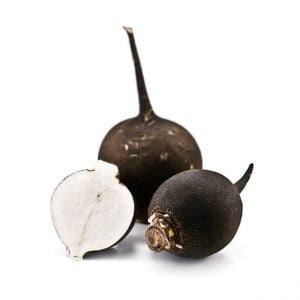 Antioxidant Powerhouse
Antioxidant Powerhouse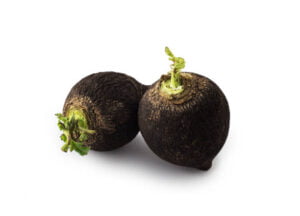 Liver Detoxification
Liver Detoxification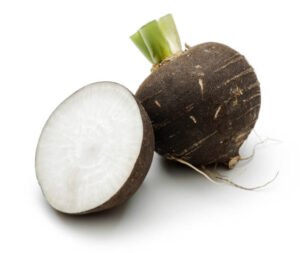 Digestive Health
Digestive Health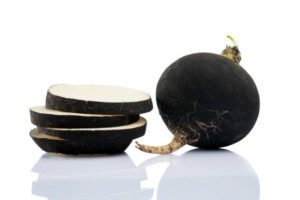 Anti-inflammatory Properties
Anti-inflammatory Properties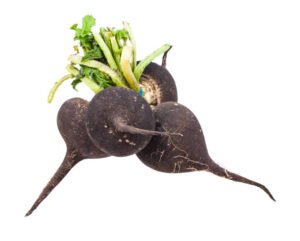 Immune System Support
Immune System Support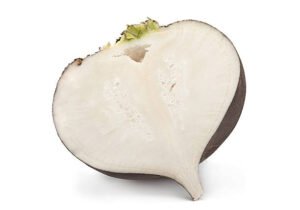 Weight Management
Weight Management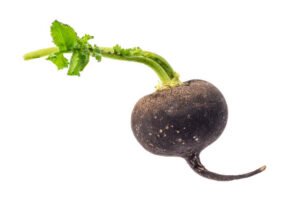 Respiratory Health
Respiratory Health